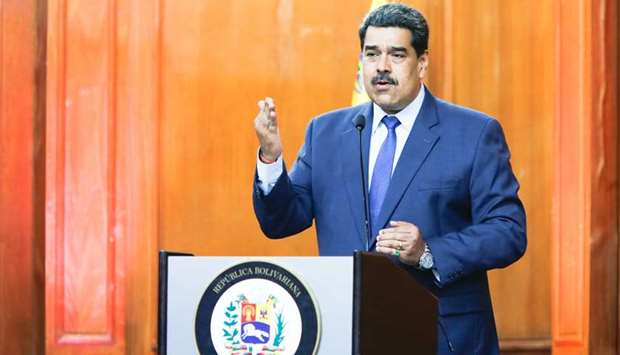Venezuela yesterday boycotted the International Court of Justice’s first hearing on a more than century-old border dispute with Guyana, saying the UN’s top tribunal lacked jurisdiction.
Caracas has been pressing a historic claim to Guyana’s Essequibo region, which encompasses two-thirds of the former British colony, since US oil giant Exxon Mobil discovered crude off its coast in 2015.
UN chief Antonio Guterres referred the row to the ICJ in 2018, but Venezuelan President Nicolas Maduro said his country would not take part in the hearings at the court in The Hague.
“Very respectfully we inform that given that Venezuela did not accept the jurisdiction of the court... the Bolivarian Republic of Venezuela will not participate,” Maduro wrote in a letter read out to the court.
Maduro accused Guyana of “unilaterally” bringing the territorial dispute — the subject of a failed UN-sponsored attempt to broker a settlement in 2017 — to international justice without its agreement.
The hearing, which began yesterday, will formally decide whether the court, which was set up after World War II to rule in disputes between UN member states, does indeed have jurisdiction over the matter.
Speaking on behalf of Guyana via an Internet link, former Commonwealth secretary general Shridath Ramphal said it was unfortunate that Venezuela did not want to take part in the hearing.
“Undoubtedly it would have been more helpful to the court for both parties to appear, to fully present their arguments,” Ramphal said.
“But at least the court has not been left to speculate as to what Venezuela might have said had it appeared in this Great Hall of Justice,” he remarked.
Guyana maintains that valid land borders were set in 1899 by an arbitration court decision in Paris, a decision Venezuela has never recognised.
Ramphal said the case was brought before the ICJ because Venezuela “our neighbour to the west, has cultivated a nationalist action...and lay claim to almost three quarters of Guyana”. Therefore the ICJ hearing, which got underway yesterday, is of “singular importance” for Guyana’s citizens who remain “united in the defence of their sovereignty and the territorial integrity of their homeland.”
Guyana is pressing ahead with plans to drill for oil in the disputed waters, with production expected to begin this year.
The court was holding its first virtual session since the coronavirus pandemic began, with judges and court officials wearing face masks.

Venezuela’s President Nicolas Maduro speaks during the Venezuela’s national award of journalism ceremony in Caracas, Venezuela.
